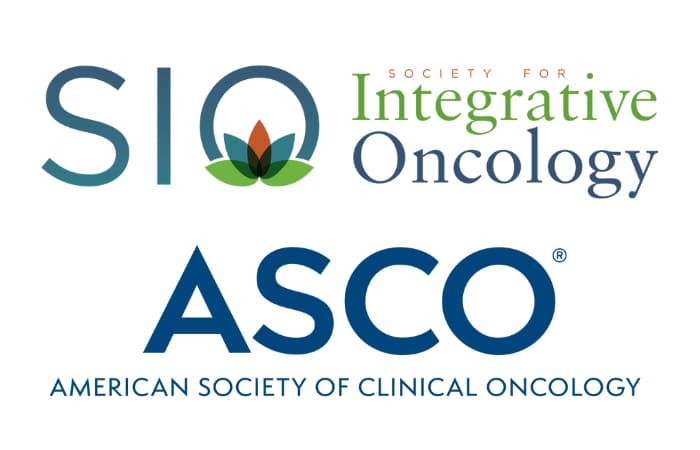Nurses: integrative oncology in practice
Implementing an integrative approach
Advise patients to seek qualified practitioners
Certain categories of therapies, such as many of the mind-body therapies, can benefit most people with cancer and have few safety issues or contraindications. Patients may be comfortable practicing some therapies, such as acupressure, on their own after instruction. Other categories, such as natural products, require more consideration and professional guidance for selecting, timing, dosing, and combining with conventional treatments. Off-label/repurposed drugs will often require a prescription. Some drugs used off-label for cancer are over-the-counter but still warrant careful monitoring and guidance from a trained professional. Many of the manipulative and body-based therapies require a trained practitioner, such as acupuncture.
We encourage patients to consult practitioners who are licensed, certified in the technique they’re using, and specialize in treating people with cancer. We share resources on both the approaches of cancer care and finding qualified professionals in Finding Integrative Oncologists and Other Professionals ›
Self care: 7 Lifestyle Practices
Self care, also called lifestyle medicine, is the foundation of health and wellness. In integrative oncology, lifestyle medicine (self-care) is given high priority. These 7 Lifestyle Practices are the core of self care.
In a strictly conventional care model, many patients and their cancer treatment team may not fully appreciate that self care through healthy lifestyle practices is both empowering and powerful in improving health, resilience, quality of life, and treatment outcomes while minimizing side effects. During treatment, research shows that self-care practices make a difference.
Example: Exercise, stress management, nutrition, and good sleep, along with weight loss and smoking cessation can improve perioperative outcomes. See Surgery: An Integrative Approach ›
Example: An integrative approach to post-treatment survivorship care includes information and support in self care to help the patient maintain the remission you all worked so hard to achieve, reduce the risk of other co-morbidities and manage many long term side effects. Those with cancer as a chronic disease will also benefit from these practices.
We encourage you to learn more about the 7 Lifestyle Practices so you can start the conversation about self care and guide your patients to resources and support. Find out about reputable classes, programs, teachers, and lifestyle coaches both in your community and online so you can pass this information on to your patients. See CancerChoices’ many online resources for each healing practice through the graphic above.
Self-care is not only important for your patients, but also for you. To learn more about how you can use the 7 Lifestyle Practices for health and to prevent getting burned out at work, see Nurses taking care of themselves ›
Complementary therapies: categories and examples
Complementary medicine or therapies include these and more:1Health Topics. National Center for Complementary and Integrative Health. Viewed October 4, 2023.
- Natural products such as dietary supplements, herbs, and probiotics
- Mind-body therapies such as meditation or yoga
- Body-manipulating therapies such as acupuncture and massage
These therapies complement rather than replace conventional cancer therapy. Complementary therapies have been shown to have these benefits:
- Improve the efficacy of conventional care treatments, with therapies such as turkey tail mushroom or melatonin
- Reduce the side effects of treatment, such as mistletoe or probiotics
- Bolster self care with mind-body approaches such as mindfulness meditation to manage stress, or a combination of cognitive behavioral therapy for insomnia as well as traditional Chinese medicine herbs and aromatherapy, for better sleep.
Different categories of complementary therapies are based in part on how they work. You may notice some differences in the names of the categories across agencies. CancerChoices has blended categories from the NIH’s National Center for Complementary and Integrative Health › and NCI’s Office of Cancer Complementary and Alternative Medicine ›. CancerChoices also added its own category called ONCAs, short for off-label, overlooked, or novel cancer approaches.
CancerChoices lists complementary therapies in these categories:
- Diets and metabolic therapies
- Energy therapies
- Exercise and movement therapies
- Manipulative and body-based therapies
- Natural products, herbs, nutrients, and supplements
- Off-label, overlooked or novel cancer approaches (ONCAs)
Optimizing body terrain
Some of the most empowering guidance you can give your patients is how to optimize their body terrain, the state of their inner environment. “[Terrain] is the sum total of diet, lifestyle, metabolism, environmental exposures and stress.”2Lemole GM, Mehta PK, McKee DL. After Cancer Care: The Definitive Self-Care Guide to Getting and Staying Well for Patients with Cancer. New York, New York: Rodale, Inc. 2015.
Body terrain, or simply “terrain”, is the internal conditions of your body, including nutritional status, fitness, blood sugar balance, hormone balance, inflammation, and more.
When optimized, terrain supports health, prevents disease, and makes the body less hospitable to cancer. For example, the imbalanced conditions of hyperglycemia and insulin resistance allow the tumor to create its own microenvironment that supports its malignant behavior and survival. Many evidence-based integrative oncology practitioners recognize the importance of a healthy body terrain and will do assessments and recommend practices and therapies to optimize an individual’s terrain. CancerChoices likens optimizing terrain to ensuring a garden has healthy soil to make the plants (healthy cells and tissues) healthier and resilient while deterring the growth of unwanted weeds (cancer cells).
Terrain factors with known connections to cancer:
- Immune function
- Inflammation
- Hyperglycemia and insulin resistance
- Bleeding and coagulation imbalances
- Oxidation
- Hormonal imbalances
- Stress chemistry
- Microbiome
- Body weight
- Vitamin C levels
- Vitamin D levels
Learn more about Optimizing Your Body Terrain ›
Case study: an integrative approach to symptom management
Your patient, Ellen, is in for a routine follow-up visit at your oncology clinic. Ellen is a 63-year-old breast cancer survivor who is now taking tamoxifen and tells you she is still having a terrible time with hot flashes, though she has been taking Effexor (venlafaxine) that the oncologist prescribed a month ago.
13 years ago, Ellen began using bioidentical HRT to get relief from severe hot flashes from menopause. 12 years later she had a suspicious finding on her mammogram which turned out to be luminal A ER/PR +, HER2– breast cancer. She immediately stopped taking the bioidentical hormones. She had a mastectomy, then began tamoxifen treatment. She thinks the hot flashes are probably a combination of no HRT and tamoxifen. She says the hot flashes are waking her up at night and she hasn’t had a good night’s sleep in months. She is also feeling very stressed and anxious.
She asks if there is anything else she can do besides taking medication to relieve the hot flashes and the other symptoms they are producing. Neither you nor the rest of the staff are familiar with natural products and other complementary therapies and self-care practices that would help. She says she would love to be able to connect with a healthcare professional who could guide her.
Think about how you and others in your clinic would respond to Ellen. If you make it part of your role to guide people to evidence-based information and even qualified practitioners, here are some things you could do:
- Start with CancerChoices and find information on integrative strategies for managing hot flashes, such as acupuncture, as well as key side effect management strategies for breast cancer treatment. See Managing Symptoms & Side Effects ›
- Tell her about the CancerChoices Volunteer Guides › service and how to request a guide if she’s interested.
- Check to see if any qualified, reputable complementary medicine practitioners, such as acupuncturists, who are either in your healthcare system or in your community to whom you could refer patients.
How CancerChoices served Ellen:
Ellen contacted CancerChoices for information that could help manage hot flashes. We connected her to a volunteer site guide who is both a breast cancer survivor and cancer coach.
- The site guide and Ellen went to Hot Flashes › and Your Breast Cancer Handbook › to look for evidence-based therapies and practices that help manage hot flashes.
- Since Ellen has disrupted sleep, they also reviewed Sleep Disruption › and Sleeping Well ›
- The guide pointed Ellen to Managing Stress › and Anxiety ›
- The guide explained that CancerChoices doesn’t make therapy recommendations but focuses on providing information and guidance. After they found information, the guide advised Ellen to take this information back to her oncology treatment team.
- As a trained integrative oncology cancer coach, the guide talked to her about additional helpful therapies, such as personal cooling devices, that didn’t have research evidence but do have lots of patient anecdotal evidence indicating usefulness. She also referred Ellen to a nearby naturopathic oncologist who was very helpful in suggesting natural products and other useful evidence-based complementary approaches.
Nurses’ roles and responsibilities in integrative oncology
“Nurses must keep abreast of the growing evidence in integrative oncology that documents the safety and efficacy of different CAM approaches for cancer patients. It is critical that nurses be aware of reputable resources and legal implications related to use of CAM.”
You probably have more than enough to do and to learn about to stay current and competent in your oncology nursing. But you’ve been curious and interested enough to read this far. If you see the validity and possibilities in integrative oncology, are open-minded and supportive with your patients who ask about non-conventional approaches, and refer your patients to credible sources of information such as CancerChoices—then you are already doing a great service for your patients. If you want to become more involved in integrative oncology, we provide additional guidance on the oncology nurse’s responsibilities and roles in this cancer care approach. Guidance is adapted from many sources.3Lee CO, Decker GM. Handbook of Integrative Oncology Nursing: Evidence-Based Practice. 2010. The Oncology Nursing Society; Rojas-Cooley MT, Grant M. Complementary and alternative medicine: oncology nurses’ knowledge and attitudes. Oncology Nursing Forum. 2009 Mar;36(2):217-24; Spencer CN, Lopez G et al. Nurse and patient characteristics predict communication about complementary and alternative medicine. Cancer. 2016 May 15;122(10):1552-9; Ben-Arye E, Shulman B et al. Attitudes among nurses toward the integration of complementary medicine into supportive cancer care. Oncology Nursing Forum. 2017 Jul 1;44(4):428-434; Chang H-Y, Su T-F, Mannino RM. Barriers to communication about complementary and alternative medicine with patients: a qualitative study. Global Journal of Health Science. 2019;11(10):43-54.
We now know that when nurses pass on trustworthy information about integrative oncology including teaching simple self-administered complementary therapies, patients do better. One study compared integrative oncology care alone versus integrative oncology care plus nurse education about practicing interventions such as acupressure and relaxation techniques at home. The people receiving the nurse education reported greater improvements in fatigue, appetite, and pain. The study spotlighted nurses’ valuable role in teaching patients about integrative oncology and empowering them in self care.4Ben-Arye E, Balneaves LG et al. Nurse-guided patient self-treatment in integrative oncology: a randomized controlled trial. Supportive Care in Cancer. 2023 Mar 25;31(4):233.
Taking action
You may find that simply learning some basics about integrative oncology is enough. Even that will go a long way in making you more responsive and helpful to your patients who come to you with questions about complementary therapies or lifestyle practices. CancerChoices.org provides basics about integrative oncology. If you want more guidance in helping your patients navigate CancerChoices, reach out to us through our Contact Us page ›
If you would like to be more deeply engaged in integrative oncology, you can take further steps to help you reach your goal.
Determine your role(s)
If you want a role in integrative oncology, start with where you are now. Questions to help you define an approach:
- Are you starting from scratch with your own knowledge and skills?
- What is the state of integrative oncology in your practice setting (oncology unit, infusion clinic, and so on)?
- Are others in your setting interested in providing information, guidance and/or hands-on integrative care?
- What is going on with integrative medicine elsewhere in your organization or in the community?
- What are you hearing from your patients?
- How supportive are your administrators for nursing-led innovative projects?
- Are you able to stay where you are and carry out the role you’d like to play either now or realistically in the near future?
- Do you want extra training and education to play the role you’d like in integrative oncology care?
Your role in integrative oncology can be as wide or as focused as you wish. It may not be easy to make changes in your own life or your work setting. The call to your true work might be subtle or loud, yet persistent until you pay attention and follow its direction. As the popular saying goes, “Dare to be the change you wish to see in the world” and see where it leads you. As my patients with advanced illness often tell me: “Go for it. Don’t wait until the end of your life to do what you’re meant to do.” Whatever “go for it” means to you, following what deeply calls to you in the world of whole-person integrative cancer care will nourish not only you but all those around you.
Helpful links for educational resources
A range of opportunities to learn more about integrative oncology are available.
Find trustworthy and quality sources of information
If you’re new to integrative oncology, one of your biggest learning challenges will be weeding out unreliable and inaccurate sources of information. Once you learn that, you can help your patients be more discerning as well. Learn more at CancerChoices’ How to Evaluate Trustworthiness of Websites on Complementary Cancer Therapies ›
Deepen your learning
You may want to deepen your knowledge and/or develop your skills in integrative oncology. For instance, you may want to become a practitioner of one or more complementary therapies such as acupuncture. Or perhaps you want to become more highly trained about integrative oncology so you can navigate patients in making responsible choices and steer them to experienced licensed practitioners.
We’ve collected some training and educational opportunities, some at no cost and others with tuition fees.
Trainings for nurses
Integrative oncology training and education
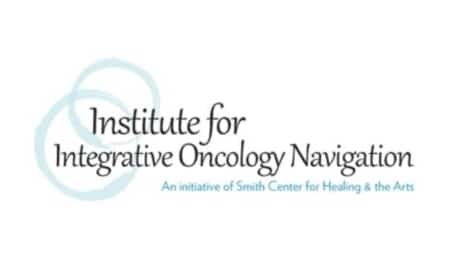
Institute for Integrative Oncology Navigation
An initiative of Smith Center for Healing and the Arts

American Institute of Integrative Oncology Research & Education™

University of Arizona Andrew Weil Center for Integrative Medicine

Integrative Oncology Working Group
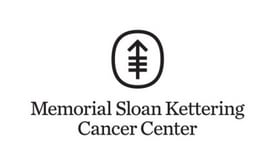
Memorial Sloan Kettering Cancer Center

Integrative Oncology Institute
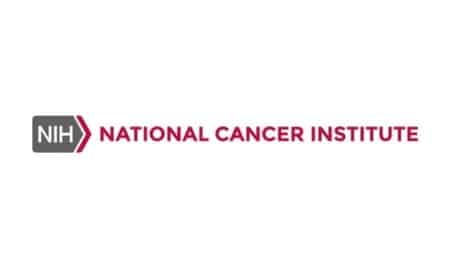
National Cancer Institute Office of Cancer Complementary and Alternative Medicine
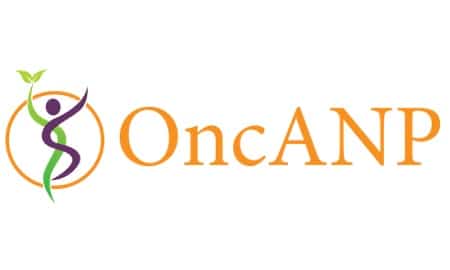
Oncology Association of Naturopathic Physicians
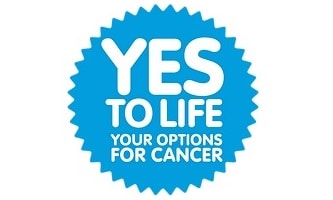
Yes to Life
E-learning courses related to integrative oncology in the United Kingdom
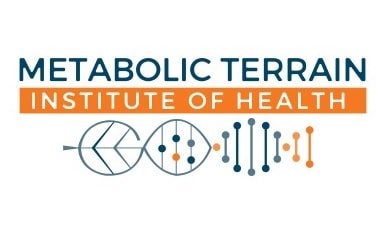
Integrative medicine or whole-person medicine training and education
Webinars and podcasts
Selected webinars and interviews from The New School
Brian Bouch
Integrative Oncology
Play videoKelly Turner
Radical Remission: 10 Healing Factors Common among Exceptional Cancer Survivors
Play videoLindsay McDonell
Your Dance with Cancer: A Conversation with a Metastatic Breast Cancer Thriver
Play videoDonald Abrams
Integrative Cancer Care: A Training for Health Professionals and Cancer Advocates
Play videoSelected interviews from CancerChoices
Conversations with Suz Mondello
Creating My Integrative Approach to Cancer Care
Play videoView the full playlist with Suz Mondello ›
Workshops and conferences
See our listing of Events ›
Books and other resources
Develop your resource library
Having your own “library” of trustworthy quality integrative oncology resources will serve you well, no matter your role. Those could be textbooks, journal articles, training handouts for your own reference, and patient-education materials, as well as lists of qualified, licensed practitioners to whom you refer your patients. Suggestions:
- When you vet practitioners, find out whether or not their services are covered by insurance and/or if they have payment arrangements such as a sliding scale.
- Look for quality, low- or no-cost, easily accessible programs such as those offered by Smith Center for Healing and the Arts ›, the Anticancer Lifestyle Program › or Wellness Within ›
- Refer patients to Nancy’s List › for financial assistance resources, including for cancer retreats.
CancerChoices is an excellent starting place to educate both yourself and your patients. On every webpage, we provide additional resources to continue explorating. Suggestions for using CancerChoices with your patients:
- Use specific pages related to therapies, side effects, or lifestyle practices to reinforce your verbal instructions,
- Use our Supplement and Therapies Database and handbooks to explore additional practices or therapies that may be helpful for your patient.
- Encourage your patient to request a CancerChoices volunteer site guide ›
If you are an oncology navigator or advocate, you may want to have a more extensive resource library. The Integrative Oncology Patient Navigation Training › from Maryland University of Integrative Health and Smith Center for Healing and the Arts gives instructions on how to populate your resource library with quality resources as well as how to vet practitioners. It also provides extensive resource and reference materials.
Some additional resources you may find helpful:
In your clinical practice
Create a climate of openness
Being open and nonjudgmental will help your patients feel more comfortable sharing their use of complementary therapies and lifestyle practices. This would include proactively assessing their use of these therapies and practices. Include statements such as “Many people with cancer look for additional kinds of therapies such as acupuncture or herbal supplements. We call these complementary therapies. What complementary therapies are you using?” For those of you providing integrative oncology consultation and care, you may find an assessment and intake tool › shared by integrative oncologist Diljeet Singh, MD, to be useful.
Introduce your patients to integrative oncology
Make this introduction if you’re prepared to link them with integrative oncology resources, services, programs and practitioners. Here is some guidance on this from the Handbook of Oncology Navigation5Chapter 13: Complementary and Alternative Medical Therapies Oncology Nurse Navigation: Delivering Patient-Centered Care Across the Continuum (Second Edition). Christensen, D. and Cantril, C. Oncology Nursing Society. 2020.: “When discussing [integrative oncology] with patients . . . ascertain patients’ use and level of interest when it comes to holistic medicine and the different modalities and therapies that can provide support in cancer care. Patients’ symptoms and concerns, their interest in expanding care, and their level of comfort with modalities should be carefully elucidated. The [nurse] should determine these factors early on when they begin working with the patient. If the patient is interested in receiving a [complementary] therapy, it is important to work from a list of licensed and qualified practitioners, ideally with some understanding of whether their services might be covered by the patient’s insurance.”
Networking, mentoring, and support as you find your place in IO nursing
You may be a maverick in your interest in integrative oncology. It’s important to find like-minded people with whom you can network and be supported and/or mentored. You might be surprised to find that there are other nurses in your center, hospital, or community who are interested in or are practicing some facet of integrative oncology nursing. Suggestions:
- Put out feelers for nursing colleagues who provide complementary therapies such as massage, yoga, aromatherapy, acupuncture, or energy work.
- See if lifestyle education and coaching programs for cancer patients are available and talk to the program staff.
- Reach out to professionals in the community who are practicing a complementary therapy you’re interested in practicing.
- Build your support network; perhaps even start an interest group that meets regularly.
- Facilitate complementary interventions for nurse self-care in your area to provide the opportunity for nurses to experience modalities first hand.
If you find that you’re not surrounded by nurses and other professionals immersed in integrative oncology in your community, other opportunities for networking, mentoring, and support might be available. We recommend several.
- One of the best places to network with other nurses interested in or already practicing integrative oncology nursing is the Society for Integrative Oncology’s › (SIO) Nurses Special Interest Group. SIO is the primary integrative oncology membership organization in North America and pulls in members from the international community as well. SIO has recently begun working with ASCO in developing integrative oncology symptom management guidelines as it seeks to make integrative cancer care the standard in oncology.
- Other integrative oncology societies such as the British Society for Integrative Oncology ›. This table lists the various integrative oncology professional organizations worldwide: Integrative Oncology Professional Organizations ›6Grant SJ, Hunter J et al. Integrative oncology: international perspectives. Integrative Cancer Therapies. 2019 Jan-Dec;18:1534735418823266.
- The Academy of Oncology Nurse and Patient Navigators now has an Integrative Health Committee › that meets monthly and is a place for networking and helping yourself and others apply an integrative oncology approach to your navigation.
- Though not specific to oncology, the American Holistic Nurses Association › is another member organization where you will be able to network, find mentors or be a mentor, and get support in providing whole person integrative care.
- Consider additional training, such as the University of Arizona’s Integrative Health and Wellness Coach program, where you develop a cohort of fellow coaches with whom you can network long after the course is completed. Even some online courses, such as the Smith Center/MUIH online Integrative Oncology Patient Navigator Training Program › offers mentoring to those completing the training.
Voices of experience
How do you weave IO into your practice setting? If you’ve set up a clinic or program, tell us about your experience. See the comment form › below.
Personal stories
Laura Pole, RN, MSN, OCNS, clinical consultant and navigator
Easing into my roles as an integrative oncology nurse navigator and clinical consultant has been an evolution spanning 30 years. It has been a constant process of paying attention to my intuition and looking out for the opportunities that presented themselves. I became interested in weaving complementary therapies and self-care support into our inpatient oncology services at a time when there wasn’t the name “integrative oncology” to describe what I wanted to do. I began by paying attention to what patients and families said they needed beyond their conventional treatment. I began to educate myself. I had to look outside oncology nursing and into the world of mind-body medicine and psychoneuroimmunology to find whole-person care approaches. The research was just beginning for some of these approaches, such as mind-body therapies. I was trained as an interactive guided imagery › facilitator. With the support of my Nursing VP, other staff nurses and I were trained as Therapeutic Touch® practitioners. I told my fellow oncology nurses and physicians about my skills and was called on regularly to use them with our patients, especially those experiencing pain and other distressing symptoms.
I read about an oncology unit that had a “humor cart“ that was wildly popular with patients and staff. I floated the idea to my colleagues, and we launched into this project that, in the end, involved people from multiple departments. The building and maintenance crew built the cart, the hospital auxiliary stocked the cart with games and funny movies and fun paraphernalia, and also provided volunteers whom we specially trained in working with people with cancer as “humor guides.” The nurses identified patients most in need of a visit from the volunteer. The funny thing (no pun intended) is that the volunteer became a “safe person” who spent more time listening to patients’ stories than passing out puzzles and videos.
In the late 1990s I went to a special culinary school to become certified as a health-supportive chef. From that I’ve added culinary translation to the integrative services I provide. Then I found my way to a free-standing cancer support organization in Washington, DC, Smith Center for Healing and the Arts. I helped co-develop an integrative oncology navigation service as well as on-site and virtual trainings in what navigators need to know about integrative oncology. In 2023, I was honored to be a co-creator and subject matter expert for the Smith Center and the Maryland University for Integrative Health online self-paced professional training program on integrative oncology navigation ›.
In 2015 the stars aligned and I was asked to be part of the creation of an open access, evidence-based website that would provide information and guidance on integrative cancer care to people with cancer, care partners/caregivers, and health professionals. That website evolved into CancerChoices. Perhaps because of my long years of experience in oncology nursing and integrative oncology (and hopefully not because of my age), I am the Senior Clinical Consultant for CancerChoices.
Susan Yaguda, MSN, RN, integrative oncology program manager
My experience with integrative care started when I was a teenager. I was studying music performance and needed some support to stay focused and manage anxiety. I started meditation practices, which included guided imagery meditation, breath work, and later mindfulness-based meditation. As my nursing career grew, I quickly saw the benefit in sharing these practices with my patients and their loved ones. From there, I learned of other complementary interventions and received additional training in tai chi, yoga, mindfulness, aromatherapy, and reiki. In my own clinical setting, I observed that many of our nurses either didn’t understand the benefits of complementary therapies for our patients and/or didn’t feel confident having conversations with patients about their use of modalities. A survey revealed that nurses at my institution who personally practiced some complementary care themselves were most likely to recommend these interventions for our patients. From there we developed a nurse champion program, which not only creates space for nurse self-care using many practices, but also educates nurses on evidence-based interventions for our patients and care partners.
I also have the pleasure of serving as a clinical consultant for CancerChoices. The mission of CancerChoices aligns with my personal commitment to provide accurate and up-to-date information for patients, care partners, and healthcare providers to support informed decision making. Empowering our patients to actively participate in their care is the core of nursing practice. CancerChoices and other reputable organizations provide the foundation for nurses to feel confident in their role in connecting our patients to evidence-based resources.
The most rewarding comment I hear from patients is how empowered they feel to be able to actively engage in their own self-care through integrative oncology interventions and lifestyle practices. Nurses are perfectly positioned to support our patients and their care partners in incorporating safe and evidenced-based integrative care throughout the cancer continuum.
Laura Freire, BSN, RN, OCN, HNB-BC, HTCP, CCAP, HSMI, oncology outpatient center staff nurse
After graduating from nursing school, it was fortuitous that I was offered a position in a busy medical-surgical oncology unit in a local hospital, and I discovered a niche that I have loved for many years. In those early years, I also discovered that there is more to nursing than physical care and that medicine doesn’t always promote all healing options. I became open to more. Fast forward to a nursing position in an outpatient oncology office that offered traditional care as well as integrative opportunities. This was truly eye opening and I was supported to obtain nursing-based education in holistic modalities. Over time, I have earned certifications that include Healing Touch, Clinical Aromatherapy, Holistic Stress Management, and a certification as a Holistic Nurse.
Currently, I am a nurse in an outpatient cancer center where I am supported to develop integrative care for staff and patients as part of my duties. This has included monthly staff programming in integrative modalities for self-care; educational boards with nutrition information, humor and self-care offerings; aromatherapy inhaler kits for patients and essential oil inhalation for staff; craft projects; puzzles and coloring pages; chair yoga and more. Introducing breathing as a relaxation tool is probably the easiest and most effective lesson in my kit. Free information on stress management and self-care strategies can be found on the website of the American Holistic Nurses Association › under the “Resources” tab as well as more information on nursing education with CEs in integrative modalities. There are so many options available to grow in integrative oncology.
Joy Carpenter, RN, OCN, Levine Cancer Institute Department of Supportive Oncology integrative clinic nurse navigator
I chose integrative oncology nursing so that I could have an impact on the lives of patients, caregivers, and families as well as have a career that felt very meaningful. After 25 years of helping patients and their families navigate their health care needs, I discovered an opportunity to support and care for patients using a person-centered approach. Integrative oncology nursing provided me the opportunity to utilize not only my medical expertise but also promote mind–body interventions to alleviate side effects and improve the quality of life for cancer patients.
The integrative oncology nurse navigation course from the Smith Center and Maryland University of Integrative Health has been a convenient way to learn and has given me both valuable and practical knowledge. By combining evidence-based information and practical application, the course has prepared me to deliver personalized, compassionate, and effective integrative care to individuals navigating challenges of a cancer diagnosis and treatment.
Contact information for Joy:
Department of Supportive Oncology
Levine Cancer Institute
1021 Morehead Medical Drive, Suite 70100
Charlotte, NC 28204
Office: 980-442-2500 Fax: 980-442-7801
Anne Reb, PhD, NP, integrative oncology nursing research and education
What led me to my work in integrative oncology research
At my nursing capping ceremony, my professor commented that I would make a good nurse researcher. I remember thinking “No way!” My journey to integrative oncology research was not a straight path. I became a nurse practitioner and realized my calling to oncology nursing after volunteering at the Lymphoma clinic at the National Institutes of Health (NIH).
Throughout my research career, I’ve been interested in integrative therapies for managing stress and related symptoms. My previous research included a feasibility study of qigong/tai chi in injured military personnel, mantra repetition in women with advanced ovarian cancer, and a nurse-led gynecologic survivorship clinic to help patients manage symptoms and adapt healthy lifestyle behaviors.
My role as an integrative oncology nurse researcher
In my position at a comprehensive cancer center, I’ve adapted an evidence-based intervention to help patients with stage 3 or 4 cancer manage fear of cancer progression. This nurse-led videoconferencing intervention, called “Day by Day,” is a skills-based program based on mindfulness practices and contemporary cognitive behavioral therapy. We are currently adapting the curriculum to a blended format including group and online sessions. My coach training at Wisdom of the Whole Coaching Academy and the Radical Remission Health Coach Program has been instrumental in shaping my research and coaching practice. I incorporate holistic tools to help patients focus on their most important values and learn skills to help them shift their mindset, trust their intuition, and manage challenging emotions.
What supported me to pursue this path in IO nursing research
My parents encouraged me to continue my nursing education and supported me each step of the way. My mentors were invaluable in guiding and inspiring me to make the research the best possible.
My advice to oncology nurses who might be interested in becoming an IO nurse researcher
Enlist mentors to support you. Spend some time being mindful each day. As an integrative oncology researcher, you will make a difference in many people’s lives. Never give up. One of my favorite quotes is from Robert Frost’s poem “Stopping by Woods on a Snowy Evening:”
The woods are lovely, dark and deep,
But I have promises to keep,
And miles to go before I sleep…
For more information, contact Anne through Cancercalmcoaching.com ›
Share your experience
We invite you to share your experience with others.
"*" indicates required fields
Health professional comment
We invite health professionals to contribute expertise or send us questions.
"*" indicates required fields
References

